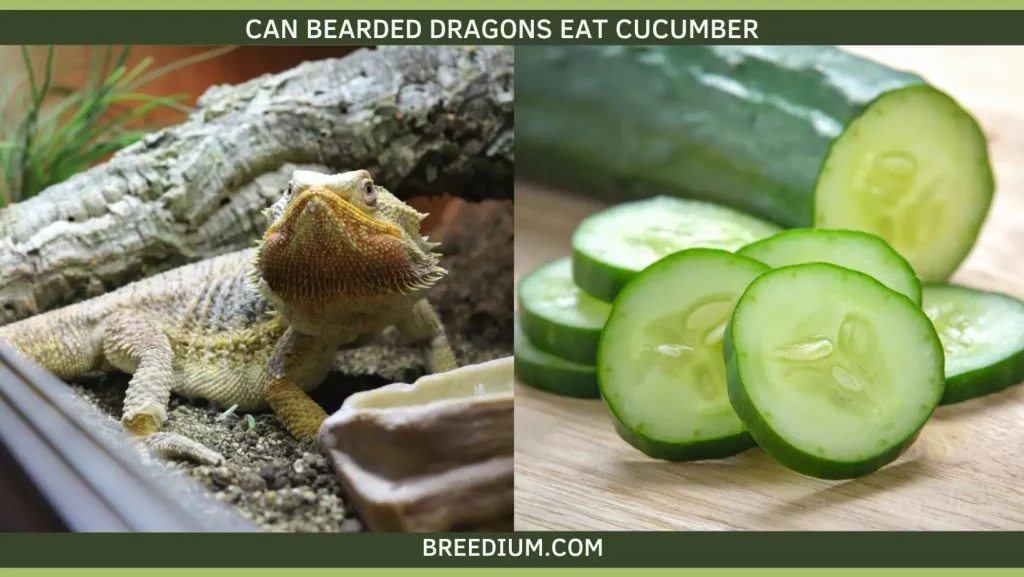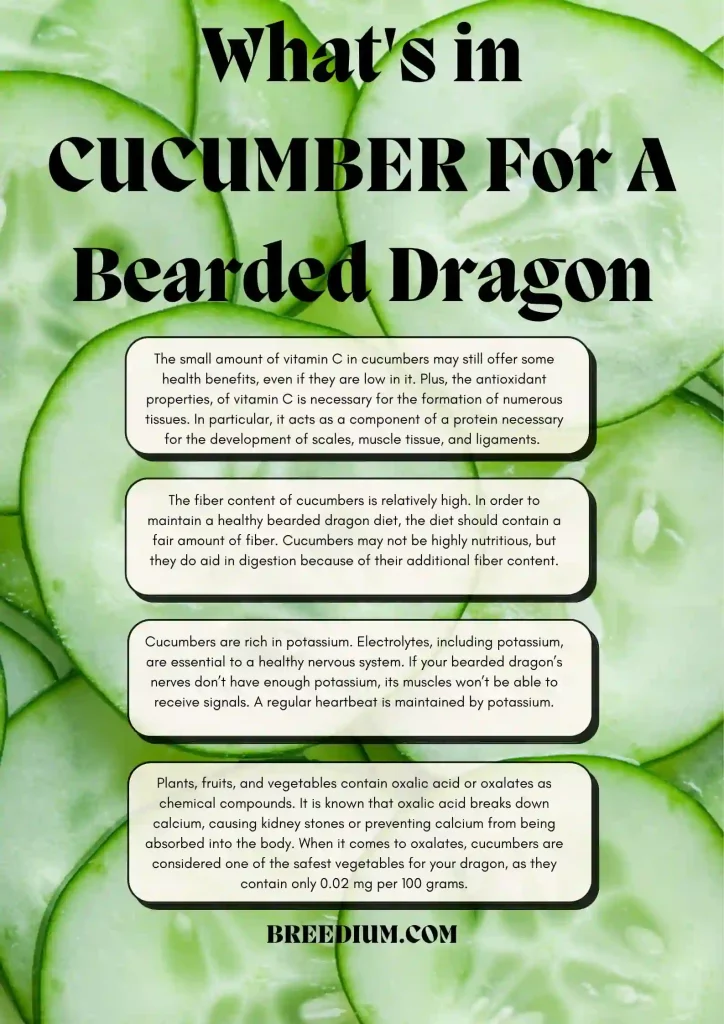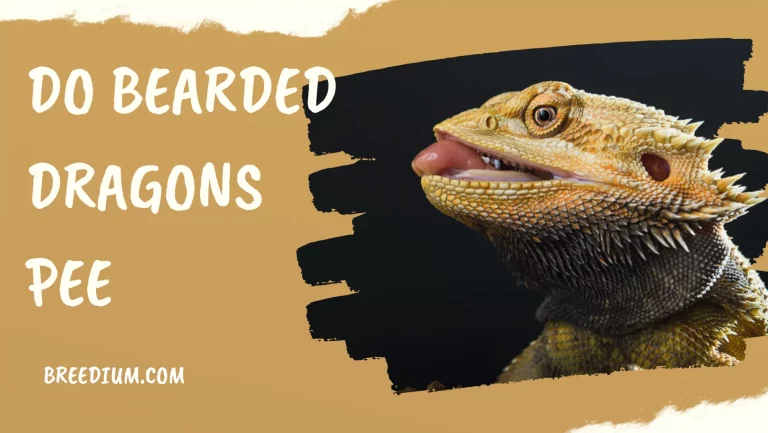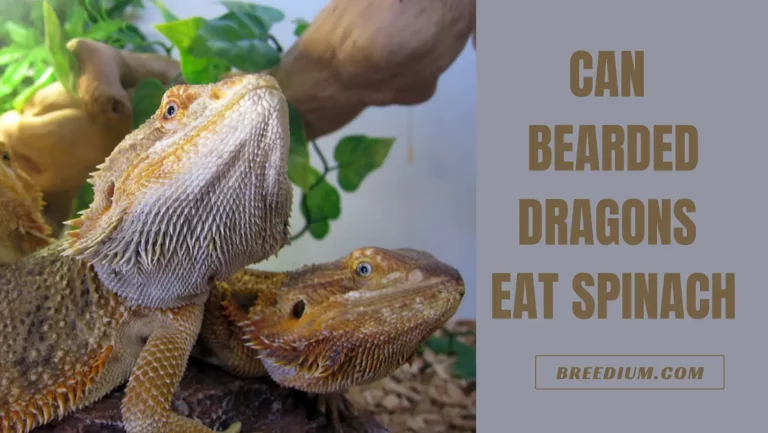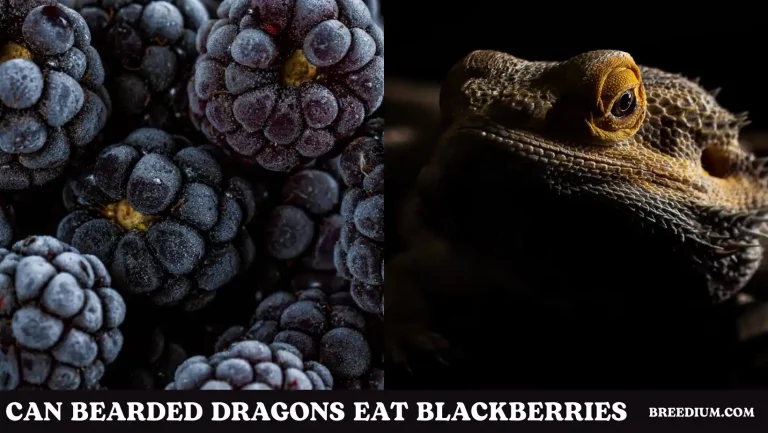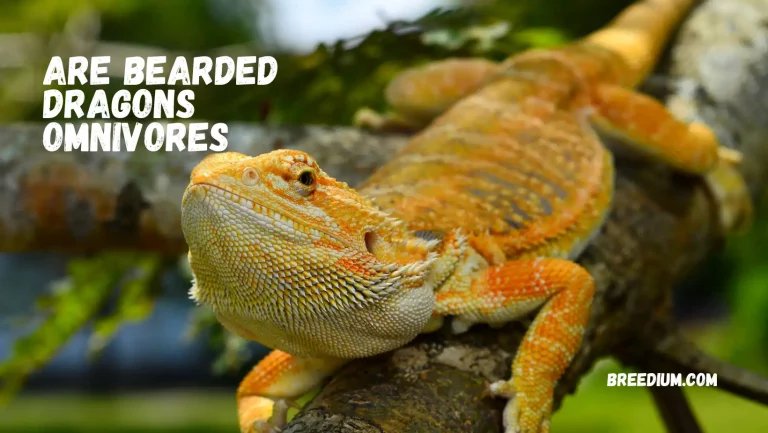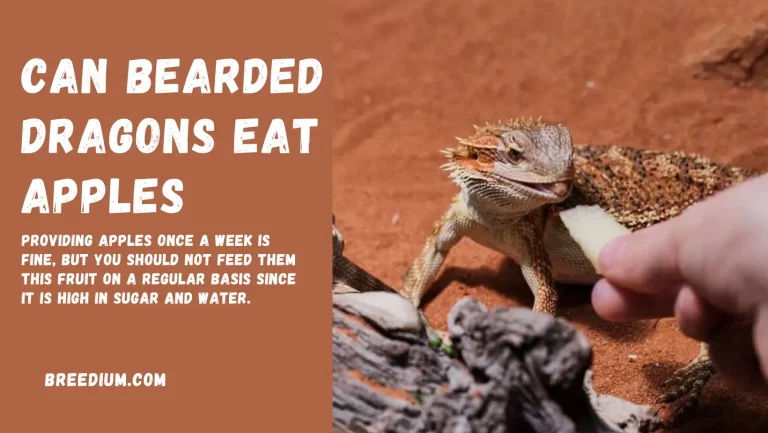Can Bearded Dragons Eat Cucumber? | Tips For New Owners 2024
Among humans, cucumbers are a popular vegetable, since they add a great flavor to salads. But Can Bearded Dragons Eat Cucumbers too? Cucumbers can be really good for dragons, so many owners wonder if they should feed them cucumbers.
In the right circumstances, cucumbers can be an excellent addition to your bearded dragon’s diet, as long as they are well-peeled and washed first. However, they should only be added to their diet approximately once every two weeks. Bearded dragons should not be fed cucumbers on a regular basis. Cucumbers should only make up a small percentage of a bearded dragon’s diet, as bearded dragons need many fruits, vegetables, and insects to be healthy and happy.
Bearded dragons require different types of food, as they have unique vitamin requirements and nutritional needs, as well as their individual preferences and the amount they are fed. The cucumber has 96% water content and lacks a lot of nutrients, such as calcium and vitamin A, that are more widespread in other fruits and vegetables, but they are very good at keeping your lizard hydrated.
Nutrition Facts About Cucumber
Cucumbers have a variety of healthy nutrients in them. It contains energy, calcium, protein, phosphorus, sugar, fiber, and vitamins too along with many other nutrients. However, it is not completely healthy as some factors can give rise to unhealthy diseases. The following nutrition facts describe 100g of unpeeled cucumbers, based on USDA data.
● Water: 95%
● Calories: 10
● Protein: 0.6g
● Calcium: 16mg
● Phosphorus: 24mg
● Sugar: 1.6g
● Fiber: 0.5g
● Fat: 0.04g
● Vitamin A: 5µg
● Vitamin C: 2.8mg.
The list above can help you analyze the nutritious facts of cucumbers.
What’s In Cucumber For A Bearded Dragon
The small amount of vitamin C in cucumbers may still offer some health benefits, even if they are low in it. Plus, the antioxidant properties, of vitamin C is necessary for the formation of numerous tissues. In particular, it acts as a component of a protein necessary for the development of scales, muscle tissue, and ligaments. Vitamin C plays the main role in the development maintenance and strengthening of bones, cartilage, and teeth. It is also important for the health of muscles.
The fiber content of cucumbers is relatively high. In order to maintain a healthy bearded dragon diet, the diet should contain a fair amount of fiber. Cucumbers may not be highly nutritious, but they do aid in digestion because of their additional fiber content. Moreover, excess consumption of fiber can also cause problems such as dehydration. Cucumbers contain vitamin K, which helps form proteins required for blood clotting. One of the most important nutrients for blood clotting is vitamin K. Vitamin K deficiency can lead to hemophilia symptoms.
Cucumbers are rich in potassium. Electrolytes, including potassium, are essential to a healthy nervous system. If your bearded dragon’s nerves don’t have enough potassium, its muscles won’t be able to receive signals. A regular heartbeat is maintained by potassium. The fluid also facilitates the exchange of nutrients between cells and the elimination of waste materials.
Plants, fruits, and vegetables contain oxalic acid or oxalates as chemical compounds. It is known that oxalic acid breaks down calcium, causing kidney stones or preventing calcium from being absorbed into the body. When it comes to oxalates, cucumbers are considered one of the safest vegetables for your dragon, as they contain only 0.02 mg per 100 grams. Have a look at Can Bearded Dragons Eat Zucchini.
When Should I Feed Cucumbers
Cucumbers can be fed to your bearded dragon once a week. When fed in the correct amounts, cucumbers can be advantageous for bearded dragons. However, excessive consumption can pose health hazards to bearded dragons.
Since they get most of their water from their food, cucumbers make a great addition to the diet of bearded dragons. Cucumbers should be fed as an occasional food due to their excessive water content. Due to their desert habitat, bearded dragons tend to drink less water. Reptiles in the wild live in an environment that is very devoid of water, but they are adapted to going without it for a few weeks.
Bearded dragons are known for being able to live without drinking water for even a week. They remain healthy since this is what they do on a daily basis. Cucumbers have a calcium-to-phosphorus ratio of 0.7: 1, so it has a higher phosphorus content. The phosphorus then inhibits calcium’s absorption in the blood by binding itself. As a result, the body becomes deficient in calcium and lacks bone development. Dragons may also suffer from Metabolic Bone Disease if exposed to it.
There are not nearly as many nutrients in cucumber as some of the vitamins and minerals it contains. The foods may fill your bearded dragon up, but the nutrients they provide are insufficient for use as regular diet food. Furthermore, also read can you feed alfalfa sprouts to bearded dragons?
Conclusion
Cucumbers are safe for bearded dragons to eat in limited quantities and do not pose any health risks to them. However, too much cucumber can cause several health problems, including diarrhea and overhydration. Compared with regular cucumbers, mini cucumbers have a lot more vitamins and minerals and are much better to use. When buying cucumbers, it is best to purchase organic cucumbers. Also, check out Can Bearded Dragons Eat Kale.
Frequently Asked Questions
Can bearded dragons eat cucumber seeds?
Cucumber seeds should not be eaten by bearded dragons. Bearded dragons are highly susceptible to choking from cucumber seeds. Having difficulty digesting them can also result in digestive issues such as gut impaction.
Can bearded dragons eat cucumber skin?
For bearded dragons, it is very difficult to chew on cucumber skin. Furthermore, it can get stuck in their intestines and be difficult for them to digest. Because of this, it is never advisable to serve them cucumbers with the skin on. Always remove the skin before serving.

Emma is a pet enthusiast, and her way with words makes her an expressive writer. Her interests lie in healthcare and planning nutrition for various pets. She has two girls, and she’s passing her passion to them through occasional volunteer projects in the small neighborhood zoo. Emma joined our team as an enthusiast and has added more years to her experience by researching more about various creatures!

